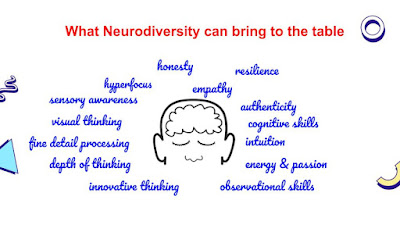My first attempts at typing were, at best, fragments. The focus was communication for this nonspeaking boy with autism. I’d never had conversations with the outside world before. I was as excited as a toddler just learning to speak. No one, least of all me, cared for the things called “punctuation,” “grammar” or “semantics.”
There would be odd spaces, words that ran together, an occasional comma or period, sentence fragments and all. Bursts of thought came gushing out and it was important to get the key words out rather than worry about a well-structured sentence. My impulsive and hyperactive body did not make for smooth typing either. My finger would accidentally hit the caps lock key and a few uppERcase letters would appear in the middle of the word as I slowly typed.
No one, least of all me, cared for the things called
“punctuation,” “grammar” or “semantics.”
But communication was opening up my world, so I didn’t quite care. And when I started typing short pieces and poems, it was all in lowercase.
You see, using uppercase involved the use of two fingers: one on the shift key and the other on the letter key. But I was a one finger typer — a lone index finger on my right hand roamed the QWERTY keyboard, searching for and hopping slowly from letter to letter.
I soared in the power the written words afforded me. My written word substituted the spoken word. People never said pause or comma when they spoke so I figured I need not worry.
With the ability to communicate came the expressed longing for education. When the transition from special education took place, I leapt into eighth grade mainstream academics with anticipation and glee — straight into the arms of Shakespeare, algebra and biology.
An unexpected side of pedantics then reared its head — there was demand for these things called “grammar” and “punctuation.” Grammar was hardly the thing to teach in my former special education world. In special education, I was thought capable of only learning C-A-T spells cat and D-O-G spells dog, and single digit addition like 8+2 = 10.
My mind wrapped around a whole host of new terminology that was part of mainstream academics. Bits of sentences linked to grammar terms, however, simply had no relevance for me.
Grrr! Gerunds were strangers that growled at me.
Modifiers dangled for some reason.
Mood was an imagined subjunctive
instead of happy every season.
Why were the verbs tensed?
I told them, don’t stress, just meditate.
“Is language not something to enjoy, rather than to be dissected like a frog?” I moaned. Did we have to reduce a sentence to a string of grammar terms?
Bursts of thoughts flow from the brain
Authority insists, must confine to rules
Macrocosm bound by microcosm chain
Drown in grammar phraseology
Lost in punctuation terminology
Essays needed punctuation and spell check; it was mandatory. I needed to bring my other index finger into play to hold down that shift key. Even punctuation like the lowercase comma had their issues.
Sometimes the Oxford comma was needed by the teacher and at other times, it was a no-show. I wondered if the poor comma made the journey from Oxford, England to the Bay Area each time it was needed.
Word processor spell checks somewhat came to my rescue. I enjoyed the composition, literature and vocabulary parts of English.
but grammar terminology —
— definitely, not in my list of graces.
In a strange new world I was navigating.
It was in an American literature class that I first met e e cummings. The first
poem I read by him was “in Just-.”
His poetry confounded me. A first glance, I sat up and wondered, “IS THIS WRITTEN BY A BOY WITH AUTISM — with poor fine motor ability like me? He uncapitalized, words ran together, there were white spaces and a general lack of punctuation. I was baffled and nonplussed, absolutely fascinated. I gaped and stared at the poem on the page.
What was going on and who was this person?
How did such a poem by a person with fine motor challenges make its way into my school textbook?
I soon discovered that e e cummings was a famous poet who intentionally decried grammar convention and punctuation. Even his name was all lowercase. No one had liked him initially, so he had to self-publish. But his unconventional style ended up being much admired by generations of critics thereafter.
There was meaning in his very lack of punctuation
which gave me a lot of courage. Maybe I need not conform.
There was meaning in his very lack of punctuation which gave me a lot of courage. Maybe I need not conform. Perhaps my autism challenges could be transformed into strengths along the way. I just had to —
had to — write in kind. I wrote the following poem in response to cummings’ assertions in his
poem “since feeling is first“ and wrote it in the nonconformist style of his other poem “in Just-.”
noPeriods, Period
death’s no parenthesis
asserts e e cummings.
actually
death
is
a
comma
an
ellipsis
whitespace
aPause
as the soulRenewsBody
life’s no paragraph
avows e e cummings
just face it
life — is
a
smorgasbord
no grammar syntax
…just flows…..
noPeriods. Period.
says e e hari
I have to thank e e cummings for giving me additional perspectives on breaking the boundaries. “it takes courage to grow up and become who you really are,” he once said.
I can break free to just be me.
Contact Hari Srinivasan at hari@dailycal.org.












.jpg)



